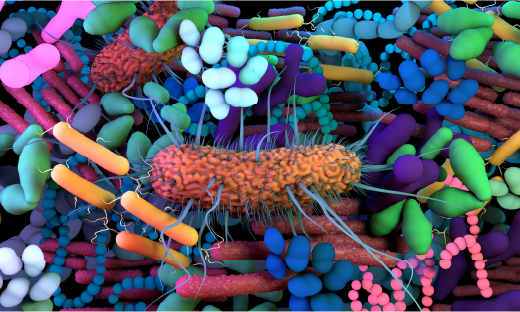Thanks to Diacomp for funding our research on the role of microbiota on Diabetic Neuropathy !
| Peripheral neuropathy is the most common complication of diabetes and afflicts over half of the 35 million Americans suffering from diabetes. There is no disease modifying therapy to prevent or delay distal degenerative neuropathy that develops early, often before diabetes being diagnosed. There is therefore a need to evaluate novel therapeutic approaches and to understand mechanisms. Recent studies have identified a link between the gut microbiome and its derived short chain fatty acids (SCFA) and pain. Our mice data demonstrates that reshaping the gut microbiome improves pain and partially reverses skin nerves fiber loss induced by high-fat high-sucrose feeding. This improvement is accompanied with repolarization of macrophages from proinflammatory to anti-inflammatory in the dorsal root ganglia of obese mice transplanted with lean feces mice compared to control. These data and literature led us to hypothesize that transplanting gut microbiome from lean mice to diabetic mice may also ameliorate diabetic neuropathy and may also has the capacity to be disease modifying. We therefore propose to perform a pilot study in which established rodent model of diabetes will receive fecal transplantation. The onset and progression of behavioral and structural indices of peripheral neuropathy are followed in order to determine whether the treatment can prevent and reverse indices of degenerative neuropathy (Aim1). As done for the diet induced obesity model, we will also use cell-sorting flow cytometry to study whether immune cell profiling in spinal cord, DRG and sciatic nerve is altered when the gut microbiota of diabetic mice is reshaped (Aim2). The study will 1) illustrate the therapeutic potential of modifying the gut microbiome to treat or delay diabetic neuropathy and 2) generate samples to understand the molecular mechanisms underlying gut microbiome/PNS communication. We hope to eventually identify specific molecules or receptors (in the gut, in the PNS or circulating) that may represent disease-modifying targets.
https://www.diacomp.org/shared/showSubContractAbstract.aspx?id=4112 |


